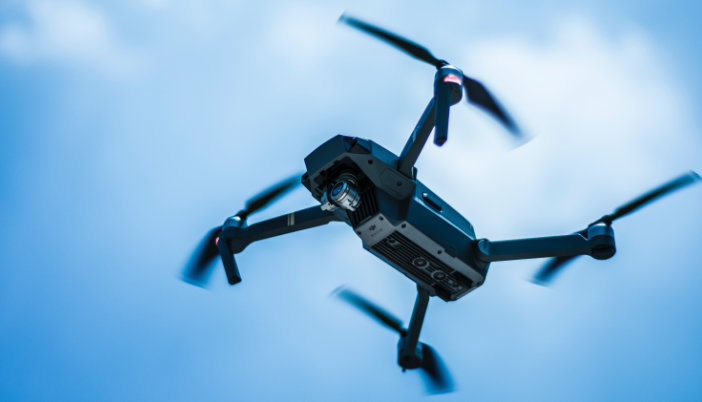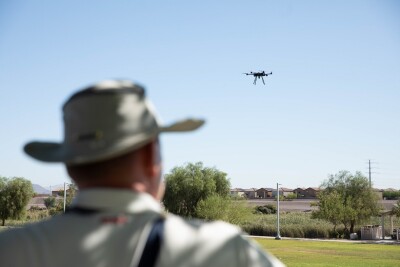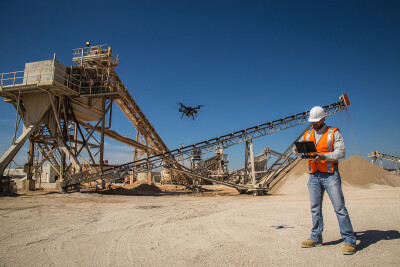Drones have swiftly become indispensable tools across various industries, from photography and agriculture to surveillance and delivery services. In late 2023, we delved into the industry’s essential steps with our "5 Steps to Drone Pilot Success” article, where we emphasized the challenges posed by regulatory changes, technological advancements, and the need for industry-specific expertise. As the demand for skilled drone pilots continues to soar, opportunities for success continue to expand, and, in this article, we’ll explore five key opportunities to build drone pilot success. However, before we dive into those opportunities, there are a few topics that need discussion.
First, drone pilot success does not solely come from the drone one might purchase. According to Paul Aitken, founder of Ask Drone U, some of the most success comes from people who have augmented their business or expertise with drones, instead of trying to augment drones in a specific field. In other words, before applying drones to a business, it’s important to have knowledge and first-hand experience of that business and understand what issues need to be solved to avoid impacting workflow efficiencies. That way, when drones come into play, it is easier to know how to implement them and leverage the collected data to help solve those issues.
Second, opportunities may vary from person to person due to each one’s circumstances. Depending on someone’s location, the business they already work at, or the connections they made along the way, different opportunities may arise. In a recent podcast, Rob Burdick, CFO at Ask Drone U, said that someone who lives in Wyoming, where ranches and land for sale are abundant, may know plenty of ranchers. In that environment, a very lucrative option could be to get in touch with those ranchers and use a drone to show off the beauty of their ranches. Or, for someone living on the East Coast, there could be tons of opportunities to film the numerous golfing resorts spread across the country. On the other hand, in more dense suburban areas, there’s a lot of opportunity to efficiently inspect cell towers.
With that out of the way, let’s get into some of those opportunities.
Training Courses
After acquiring a Part 107 license, if “Drone Pilot Success” translates to making money right away, then Training Courses may not be the first thing that comes to mind. However, whether you decide to follow a technical or creative route, piloting skills cannot be neglected. No matter which industry you’re working in, Aitken believes the fundamental skill to be good at any job comes down to flying confidently in many different environments. In addition, he states that “you have to be good on the sticks”.
Drone U’s Flight Mastery course is an example of how one can improve their piloting skills by learning smoother movements on the sticks, complex motions to acquire better shots, or training with an expert pilot to refine skill sets. Improving flying skills helps pilots react and adapt to different situations faster, resulting in a positive profitability impact by reducing the time it takes to get a job done.
“I always try to think of what systematic or fundamental skills a good pilot needs no matter the drone job. And, no matter what, you need to be good at flying in close proximity to things,” Aitken says. “You need to be comfortable flying your drone in areas where you might hit a tree or a power line, and you have to have that innate confidence in flying your drone.”
Surveying
Identified as the most profitable of all the segments in 2018, surveying continues to be one of the most sought-after drone-related services in the industry and is expected to witness double-digit growth in the next 10-15 years.
Drones allow professional surveyors to easily build a great number of deliverables for their clients. For example, on large wide-open areas with no forest cover, a drone with high-end lidar equipment can cover up to 500-750 acres in a day. The amount of collected data in that time can be turned into point clouds, digital elevation models, thermal imagery, contour files, 3D models, and more.
When it comes to surveying, the opportunities are vast, since the demand for land surveys arises from many other sectors, including Construction, Agriculture, Mining, Inspections, Conservation and Environmental, and more.
Construction
The incorporation of drones in the construction sector has resulted in transformative progress across every stage of a project’s lifecycle. The construction industry anticipates that drones will increasingly play a critical role in shaping its future.
Other than leveraging drone mapping and surveying during the design phase of a Construction project, there are multiple opportunities for pilots to take part in. In the “An Overview of Drone Applications in the Construction Industry” article, the Seoul National University of Science and Technology’s Department of Civil Engineering names various ways to apply drones in Construction.
For example, during a project’s construction phase, drones can help monitor earthwork and grading, quality control and progress, and safety, or track and deliver materials. During the maintenance phase, drones can be equipped with high-resolution cameras for inspections, as well as lidar and/or thermal sensors for structure maintenance.
Cell Tower Inspections
With most cell towers being 100 to 300 feet tall, and some even reaching up to 1000 feet, the safety advantages drones provide should be immediately clear. On top of that, whereas a manual cell tower inspection costs anywhere from $2,000 to $5,000, drones can cut those costs by up to 50%.
As the world grows more and more connected, the number of cell towers grows steadily worldwide. Last year, the Wireless Infrastructure Association (WIA) reported that, in the US, there were 142,100 cell towers and 452,200 outdoor small cell nodes across the country at the end of 2022. As those numbers continue to grow, so do opportunities for drone pilots to get jobs inspecting these towers.
Drone Service Providers
Whether a beginner or experienced drone pilot, some drone services companies are always looking for new pilots to join their network. For example, FlyGuys, a full-scale nationwide drone services company, only requires a pilot to have a personal drone and a Part 107 license to be eligible to receive jobs.
In 2023, an audio, web development, and entrepreneurship background led Kevin Perberg, a FlyGuys drone pilot, to convert his Ford Transit van into a mobile office. He traveled from coast to coast accepting FlyGuys’ drone jobs and out-of-state projects from local companies he stays connected with. At the end of the year, after completing 350 jobs, he achieved a six-figure income. But, to reiterate what we mentioned in this article’s introduction, being a successful drone pilot isn’t just about buying a drone.
“To succeed in the drone industry, you must have a diverse skill set,” Perberg stated. “And not just in the tech sense. Communication skills, administrative skills, and hitting deadlines—all of these traits are so imperative to work in this industry. You also need to accept change regularly and be willing to keep up. The way of doing something today may change tomorrow, so you have to be able to pivot. A lot of people get into drone piloting because it’s cool. But the industry isn’t even really about drones. It’s about data capture, and you are a data collector. That is what matters for clients seeking drone pilots. So, to be a serious and successful drone pilot, you need to be aware of the value the data you are collecting serves.”















Comments